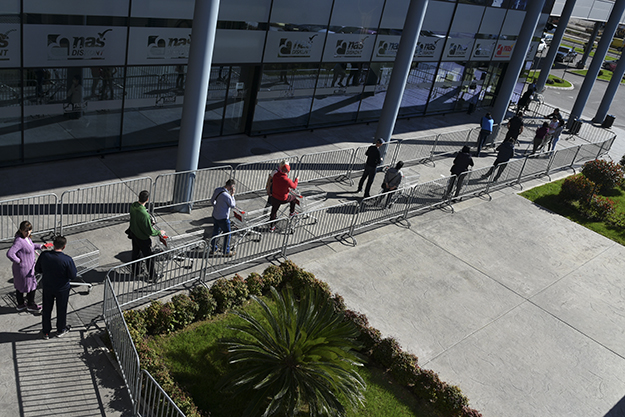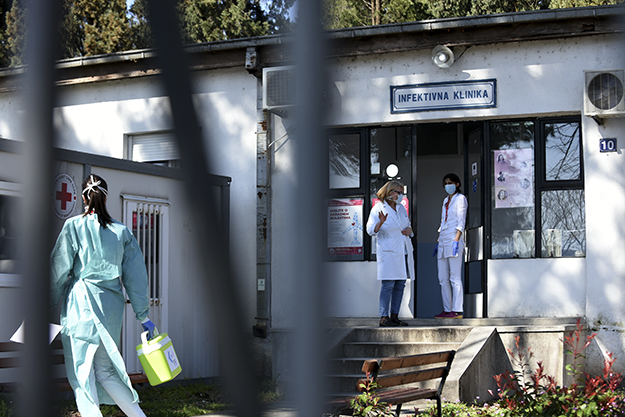The publication of the names of more than 10,000 people required to self-isolate during the first wave of COVID-19 could cost the state of Montenegro a substantial amount of public funds. Numerous lawsuits have already been filed, and more are expected to come.
The decision to publish these records seemed reasonable and necessary to the institutions behind it — the (outgoing) government and the National Coordinating Body for Infectious Diseases — though many warned that such a move would constitute a direct attack on privacy.
Personal data of the people who had been issued a written notice to self-isolate for 14 days was published beginning on March 21. The outgoing Prime Minister Duško Marković asserted that the list of quarantined individuals was being published “because the right to health and life is above the right to unconditional protection of personal data.”
The Constitutional Court, however, overruled the government’s decision on July 27. They concluded that the publication of personal data of people forced to self-isolate “created preconditions for their stigmatization” and that this data could be accessed by an unlimited number of citizens, which was deemed a mistake.
Following the ruling, the first charges were filed in September, and the government was compelled to issue an apology.
Kosta Mijušković, one of the people whose names were made public, is now pressing charges against the government. “I think it’s time for the state to correct its mistakes,” he tells K2.0.
Deep stigmatization
In mid-October — pressured by the mounting charges — the government issued a public apology to everyone who had their rights violated. They announced that it had been concluded that the Coordinating Body decided to publish the names during the first wave of the pandemic with full conviction that their actions were in accordance with the Constitution and other laws, as well as the European Convention for the Protection of Human Rights and Fundamental Freedoms.

As part of COVID-19 measures, the Government of Montenegro published the names of more than 10,000 people required to self-isolate in spring. Photo: Boris Pejović.
“The measure was found indispensable and proportional to the legitimate goal of protecting the lives and health of all citizens. In light of the ruling by the Constitutional Court of Montenegro, the Coordinating Body deeply regrets the potential feeling of inconvenience caused by the decision to publish the names of people in mandatory self-isolation.”
On the other hand, Podgorica-based lawyer Vesna Cimbaljević does not approve of the terminology used by government officials. She says that it is no “feeling of inconvenience” but rather a “deep stigmatization that some people took quite badly.”
She legally represents a number of citizens who have decided to seek restitution in court for everything they went through.
“When someone’s right has been violated — especially if that right is enshrined in the Constitution — on no account can we talk about a feeling of inconvenience,” she explains, adding that the government made a huge oversight. However, she welcomes the public announcement and apology.
“I believe it’s a good way to help people who have faced any sort of stigmatization,” the lawyer points out. According to her, at the emotional level, no one can judge the intensity of negative emotions they experienced.
Traumatic homecoming
Kosta Mijušković found his name on the list of the people required to self-isolate due to the possibility of infection. As was the case with many other residents of Montenegro, he was outside the country at the outset of the pandemic.
“The state promised either to bring us all home from abroad at its own expense or to refund the all-too-expensive plane tickets we had bought as per their advice,” says Miljušković, recalling the troubles from last spring.


